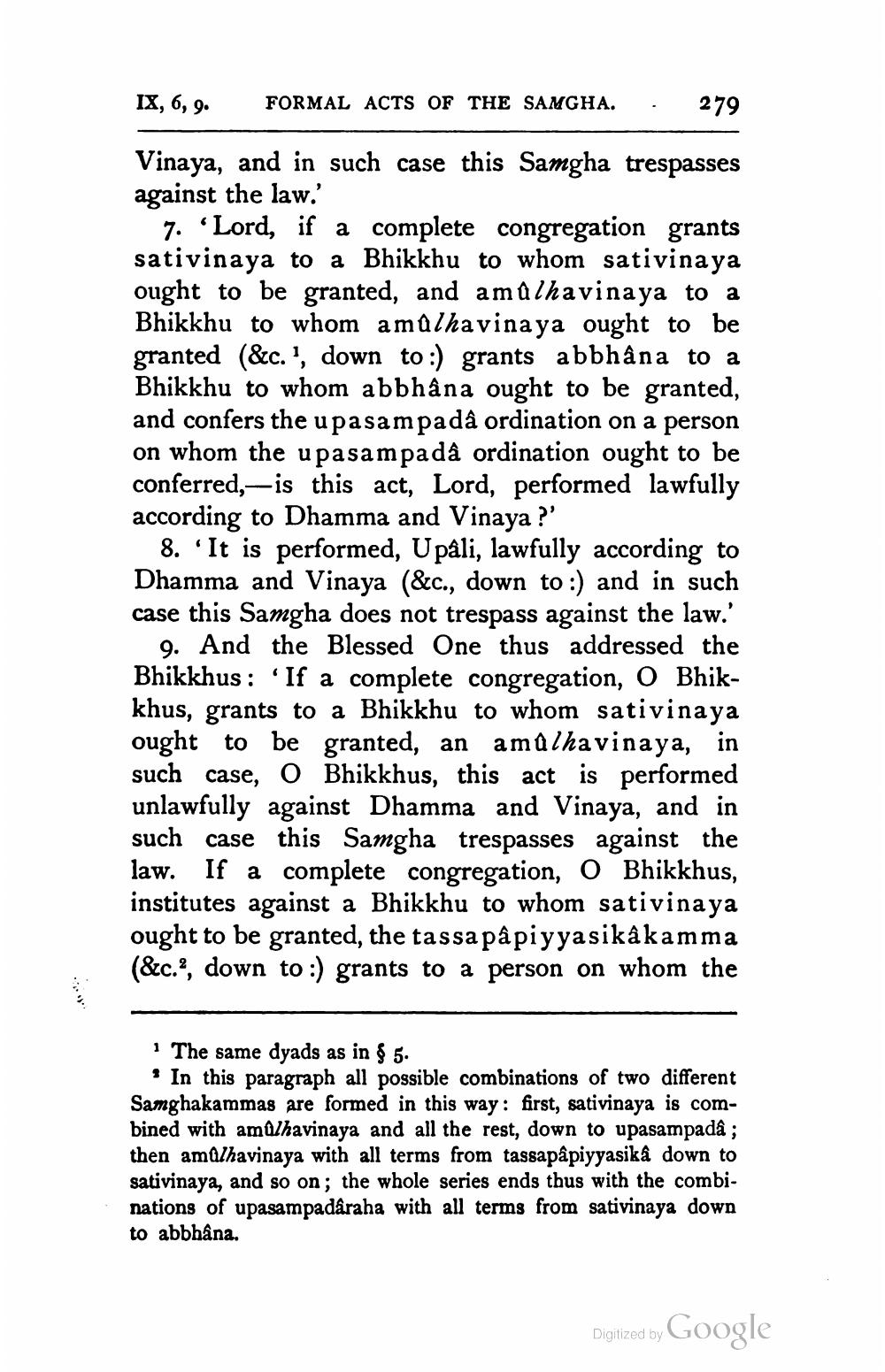________________
IX, 6, 9. FORMAL ACTS OF THE SAMGHA.
Vinaya, and in such case this Samgha trespasses against the law.'
7. 'Lord, if a complete congregation grants sativinaya to a Bhikkhu to whom sativinaya ought to be granted, and amulhavinaya to a Bhikkhu to whom amůlkavinaya ought to be granted (&c.', down to :) grants abbhâna to a Bhikkhu to whom abbhâna ought to be granted, and confers the upasampadâ ordination on a person on whom the upasampadâ ordination ought to be conferred, is this act, Lord, performed lawfully according to Dhamma and Vinaya?'
8. 'It is performed, Upâli, lawfully according to Dhamma and Vinaya (&c., down to :) and in such case this Samgha does not trespass against the law.'
9. And the Blessed One thus addressed the Bhikkhus: 'If a complete congregation, O Bhikkhus, grants to a Bhikkhu to whom sativinaya ought to be granted, an amûlkavinaya, in such case, O Bhikkhus, this act is performed unlawfully against Dhamma and Vinaya, and in such case this Samgha trespasses against the law. If a complete congregation, O Bhikkhus, institutes against a Bhikkhu to whom sati vinaya ought to be granted, the tassa pâpiyyasikâkamma (&c., down to :) grants to a person on whom the
279
1 The same dyads as in § 5.
In this paragraph all possible combinations of two different Samghakammas are formed in this way: first, sativinaya is combined with amûhavinaya and all the rest, down to upasampadâ; then amûhavinaya with all terms from tassapâpiyyasikâ down to sativinaya, and so on; the whole series ends thus with the combinations of upasampadâraha with all terms from sativinaya down to abbhâna.
Digitized by Google




